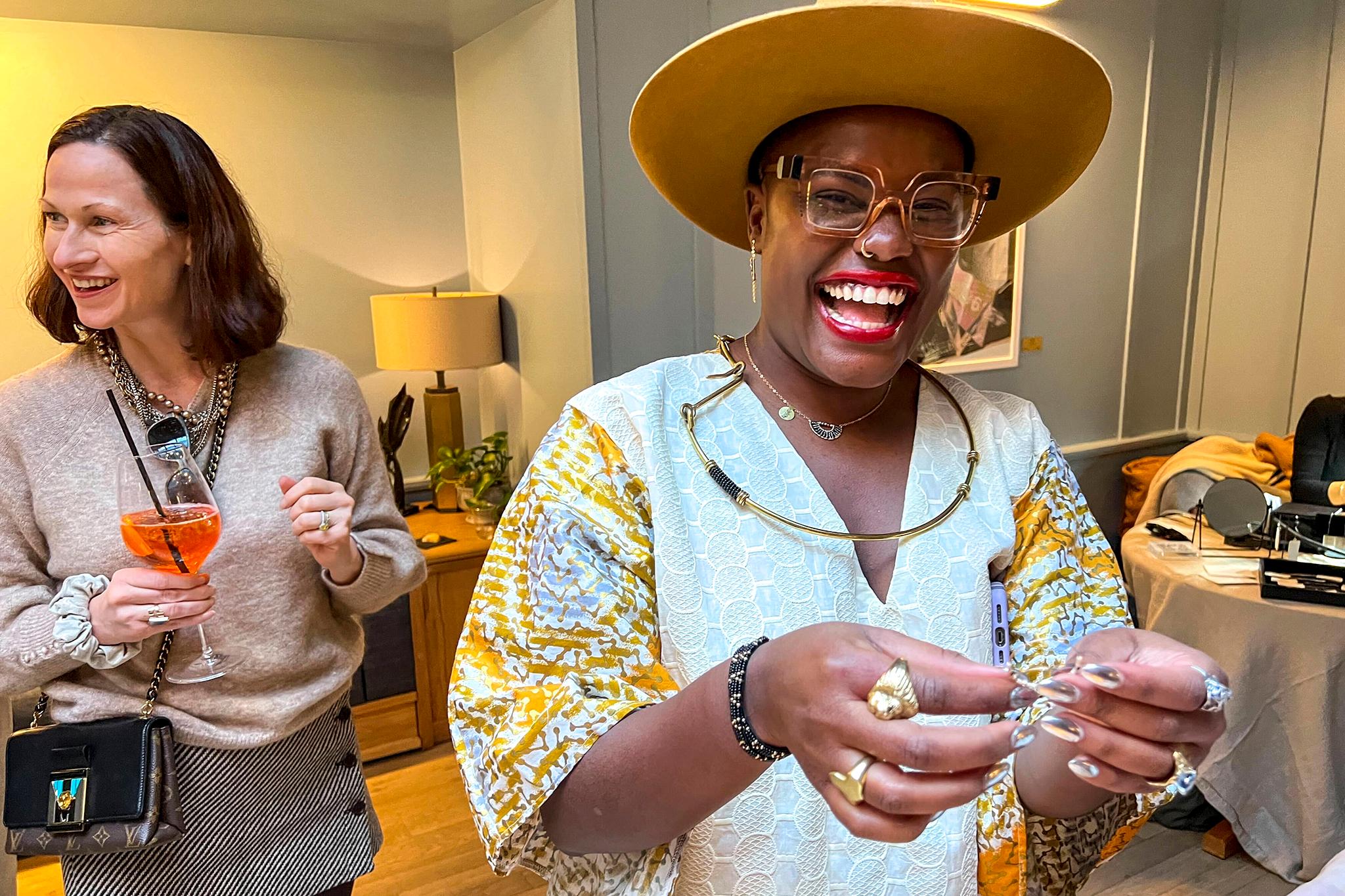
When Koya Nyangi moved to Colorado in 2018, she experienced culture shock, she said, in part because she noticed that people don’t really dress up here.
“I'm used to walking around and being like, ‘Oh my God, that's so beautiful. Did you see that outfit?’” Nyangi said.
Not so much in Colorado. But she decided to keep dressing up herself because she believes fashion makes people want to elevate other parts of themselves, too. Plus, it’s the way she’s always been.
“When I came out of my mother's womb, fashion came right alongside with me,” she said.
Nyangi is a stylist and consultant who’s originally from Nairobi, Kenya and is now based in Broomfield. Through her company Let Me Show You Different, she promotes designers and labels from the African continent. She uses a variety of avenues, like consulting with retailers, styling fashion shows, and hosting markets where she can get directly in front of consumers.
In December 2023 in Denver's Cherry Creek neighborhood, Nyangi curated a holiday market in the Clayton Members Club.
“If you are going to go and buy luxurious stuff, then I want to introduce you to a luxurious brand from Africa,” Nyangi said as she showed off jewelry from the Tanzanian brand Sidai Designs.
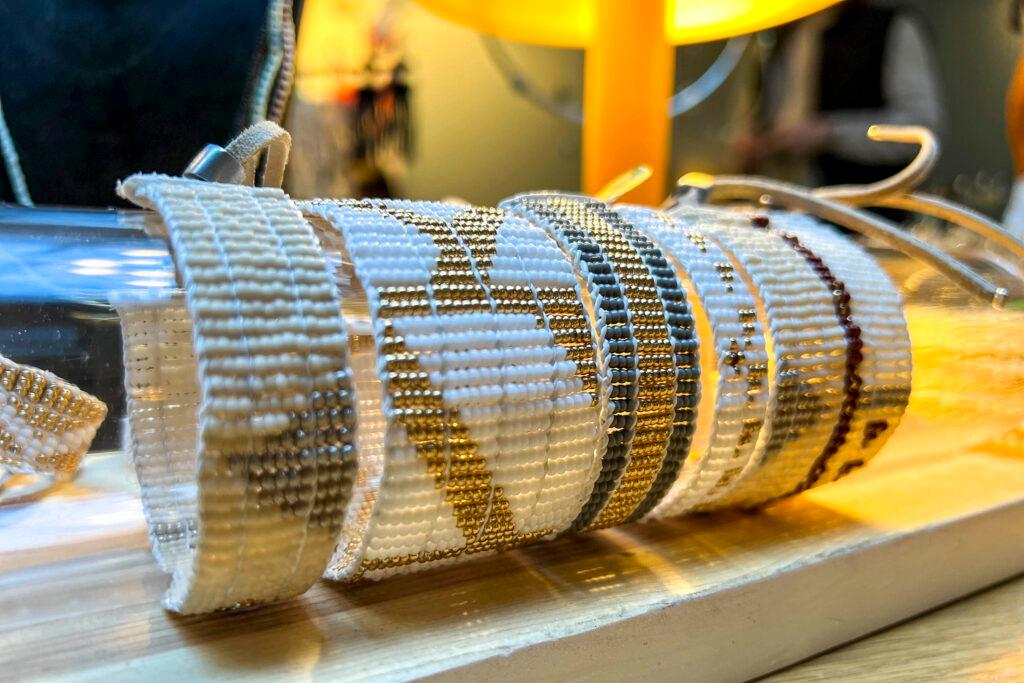
The bracelets and necklaces on display were hand-beaded by Maasai women in Tanzania, and Nyangi said all the profits went straight back to them.
The sale of the jewelry was significant in several ways: Nyangi said it helped preserve the cultural tradition of beading that the Maasai do; helped create financial empowerment for women; and challenged the notions Americans have about what “African fashion” is.
Caryn Pine, who works in the beauty industry and partners with Nyangi, said that helps make what Let Me Show You Different is doing very unusual in Colorado and throughout the U.S.
“She is not bringing just the traditional things. She’s bringing things with a modern element, a modern twist,” Pine said.
Also on the table were wallets made of fish leather by a Kenyan brand called The Label Saba, which are an example, Nyangi said, of innovation in materials and sustainability coming from the continent.
“This is amazing to have Koya curating all these amazing artisans from Africa so we can enjoy unique pieces here in Denver, Colorado. It feels super special,” said Mariana Esteves, who bought a thin beaded necklace at the December market.
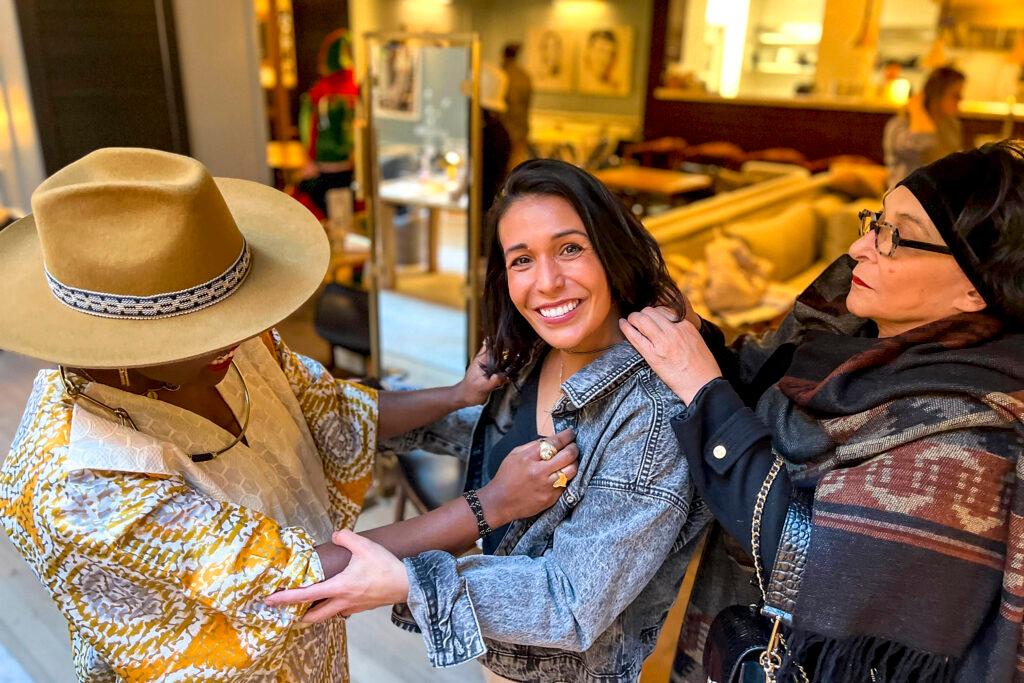
Nyangi — dressed in zebra-print heeled boots, a floral skirt, a patterned top, and large gold earrings — talked with Colorado Matters host Chandra Thomas Whitfield about her vision, plans for her largest annual event in June, and whether she’s seen progress in support for designers from Africa since the racial justice movement in 2020.
Read the interview
This interview has been edited for length and clarity.
Chandra Thomas Whitfield: I understand you read an article in Vogue that helps explain your mission to spread African fashion in places like Colorado. What was that Vogue story about and what effect did it have on you?
Koya Nyangi: There was an article that came out in Vogue like “Global designers to watch.” I remember I was so excited reading it because I knew I was going to stumble maybe on an African designer whom I love. I read the entire article and there was no one from Africa. How can the title be “global designers to watch” when we've missed an entire continent?
This is a magazine that a lot of people really look up to and watch and listen to and hear from, and they did not have any designer to watch [from Africa]. I could mention five off the top of my head who are doing amazing things. And so that really made me understand the importance of telling a story, creating opportunities, and getting people to know about all these designers who are doing such fabulous things.
Thomas Whitfield: How did you come to do this work specifically in Colorado, and do you feel like being in Colorado has influenced your approach or mission?
Nyangi: I love being here, and I think the good thing about being in Colorado is the openness towards learning. You have people who are coming from all over, and so there's this sort of yearning to know.
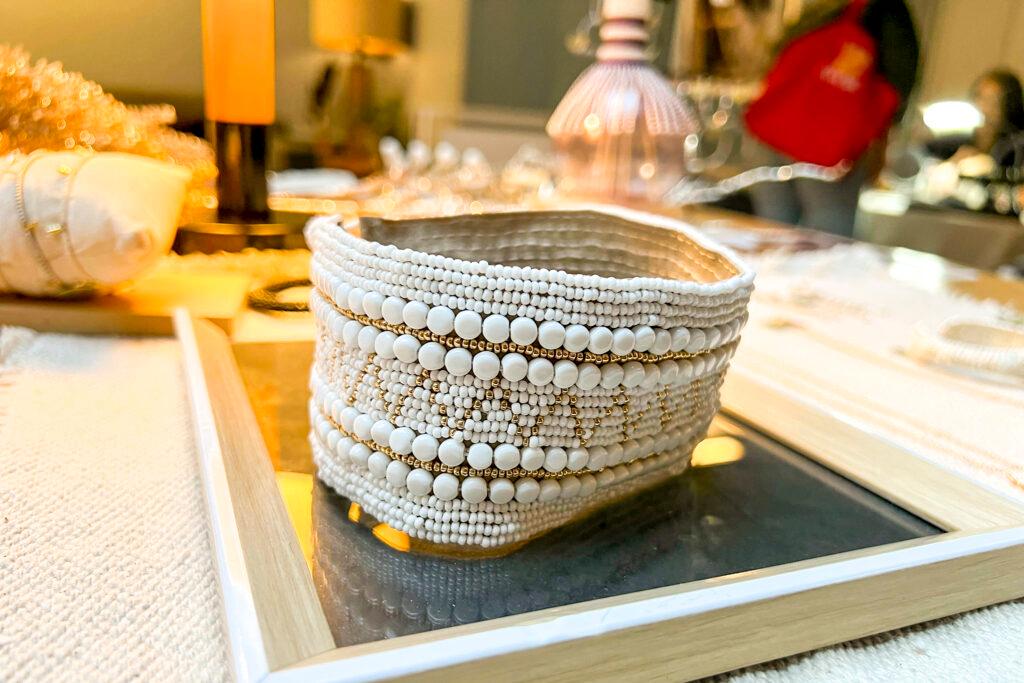
Thomas Whitfield: Instead of getting frustrated by the lack of knowledge, you decided to bring it here.
Nyangi: The thing about being an African is you will constantly get asked really ridiculous questions, like, ‘Do you have a lion?’ I'm a city girl. I come from Nairobi, Kenya. People ask you all these things, though. I guess there's a lack of understanding and a lack of education, and I think this has always stemmed from the media and how it has told the story of the continent.
I had to struggle a lot with whether to say, “African designers,” or “African fashion.” It’s a continent with 54 countries. Every single one of them looks very, very different. And so I had to go back and do an education of what it is that these brands are doing, why it matters, and what more they are championing because they have been spearheading sustainability for a really, really long time.
This is a continent that has informed fashion for so long. Think about “safari chic,” or when they had all this leopard print, and the basket bags – all these things. But we have always been outside of the table, every single time. African fashion has the ability to create tons of jobs on the continent. The problem happening in Africa has always been one of opportunity.
Thomas Whitfield: Really, it is amazing the diversity that you see in thought, style, fashion, and everything across the African continent.
Nyangi: All these great designers and creators, they need a space. They need to showcase who they are. They need to tell us the story. They need to be the ones who say, ‘This is the new Africa.’ They get to be the ones who change the narrative that has been told by other people who don't live there but come and enjoy and then tell the tales.
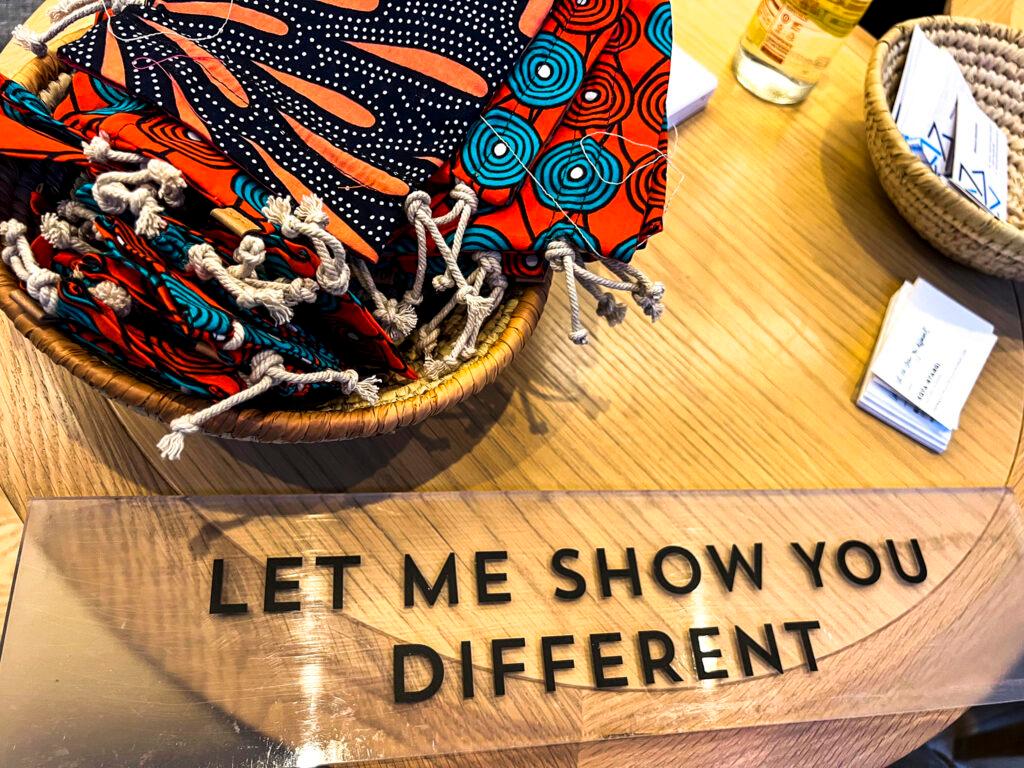
Thomas Whitfield: Where did the name of your company, Let Me Show You Different, come from?
Nyangi: Let Me Show You Different is sort of like a mindset. It is the people who think that there is no box. It's the people who go outside the norm. It is the people who, when everybody else has said, “Let's go this way,” they're like, “Wait a minute, let me think different.”
So it's a lifestyle. It is a decentralizing of how things have always been and recognizing that we can do things differently. Our motto is “Be bold, be brave, be different.”
If I think the way we are supposed to think, then it means that there are people who will not have opportunities that should have opportunities.
Thomas Whitfield: It seems clear that this is a calling for you.
Nyangi: It really is. People have drowned to get to better places. There's a wall that people are trying to build, so people are not allowed into certain places. And I found myself in this country where you live the American dream, and I got here and I was like, “Well, what am I going to do?”
When you think about colonization, it was people coming into Africa to mine all the great resources that we have. Now, for me, it is no longer “the world to Africa.” It is “Africa to the world.”
Thomas Whitfield: Your biggest annual event is coming up in June. This will be the second year. Can you give us a preview, and explain what this means for the creators who are showcased?
Nyangi: This event is the celebration of African culture through the eyes of the African creators. It's a journey of discovering new designers, food, and music — discovering what African culture really is. This year is going to be bigger and better.
For creators, they get to have the microphone. They get to tell us what their Africa is. They get to share who they are.
I guess that's a really good thing for Denver as well, and for all the people who will come and immerse themselves in this beautiful night.
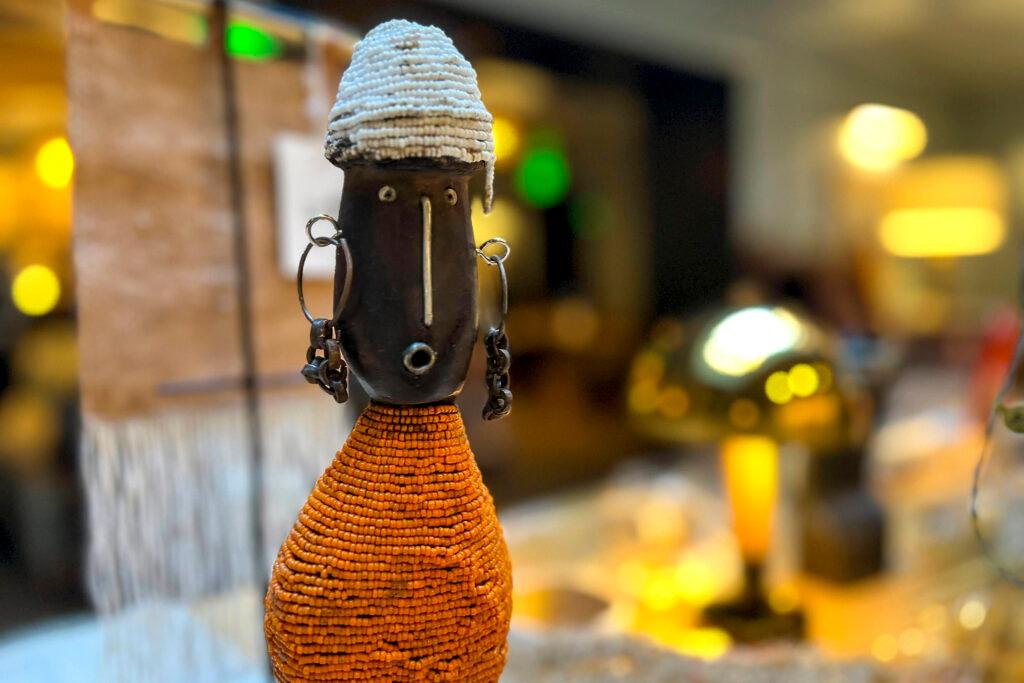
Thomas Whitfield: Growing up in Kenya, how did you first get into fashion?
Nyangi: When I came out of my mother's womb, fashion came right alongside with me. My fashion is innate. The thing that I can do with my eyes closed is style.
But I thought everybody could do this, and I didn't know that there was a thing called fashion styling. I didn't grow up reading magazines. And I went to school to study communication because I wanted to tell stories about Africa. I guess it's come full circle: I feel like I'm telling stories about Africa.
Thomas Whitfield: Could you say more about the Maasai women whose jewelry you help promote and sell?
Nyangi: The Maasai women of Tanzania know how to bead. But also, the Maasais are nomadic, and they move a lot, and if you have a lot of cows in the Maasai community, you are very, very rich and you're empowered. The women have beading. The idea with Sidai Designs is for women to have their own financial stability and their own financial empowerment. It's about enhancing the skills that they already have and also creating new skills, so they're also taught metalsmithing.
So when I tell people that African fashion saves lives, I really do mean it, because now they get to have value and they get to get paid from what it is that they already know. It's also about preserving traditional techniques and introducing new techniques for them, and to encourage the new generation. And it is to have ownership in their culture. They get to benefit from their culture, which has benefited everybody else.
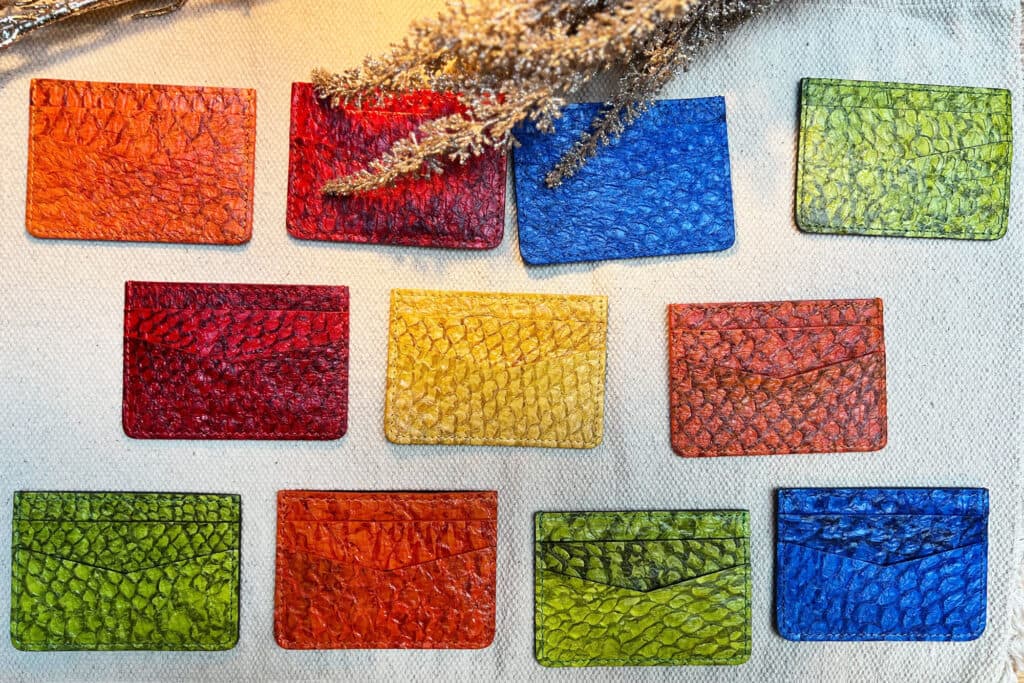
Thomas Whitfield: There was some momentum around supporting Black designers in 2020 on the heels of the racial justice protests. Did you see more recognition for African fashion at that time?
Nyangi: Yes and no. It was good. I think there was momentum, but I think it's kind of subsided over time. Sometimes I look at all these amazing Black actors getting their pictures taken [on red carpets], and I'm like, “Who are you wearing?” I don't see you wearing any full-blown, Black-owned whole outfit. I would love to see more of that.
Thomas Whitfield: What would it take to make this movement that you're leading here in Colorado more sustainable over time?
Nyangi: We need more people to buy from African brands. We need more retailers. When buyers go to shows, they need to stocking African brands in their stores. My entire work is to connect African brands to buyers across America.
We need to stop buying “African-inspired.” You need to be buying from actual African designers who are the ones who are creating these pieces, not somebody else who has been inspired.









